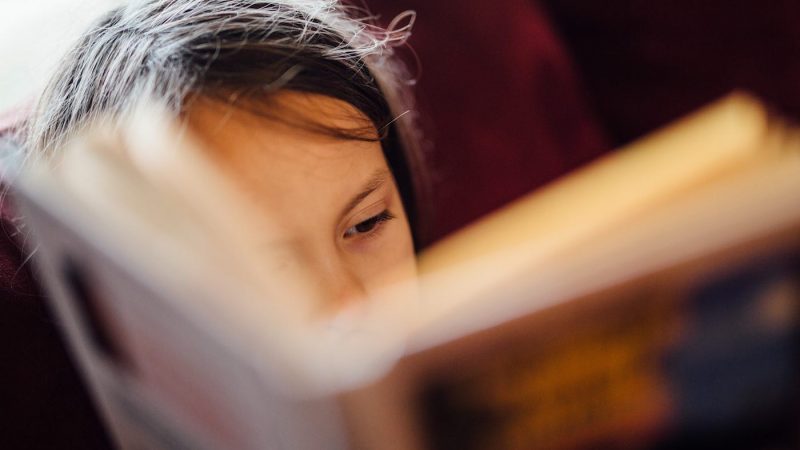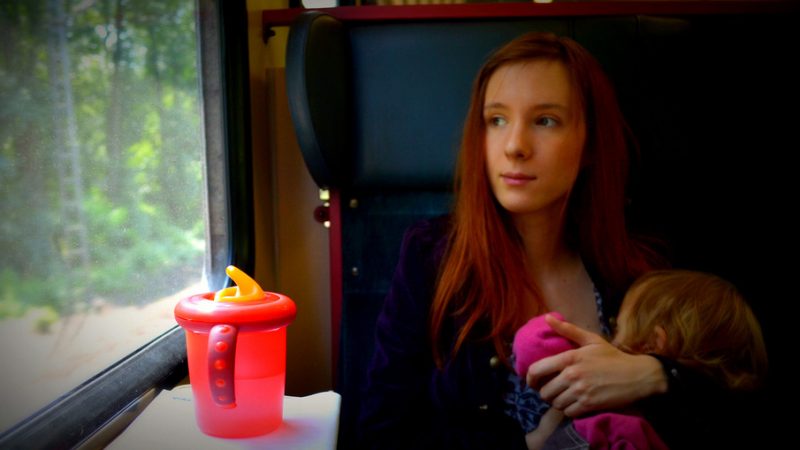
Not selling sexism, a bookseller’s perspective: A Q&A with Fen Coles, Letterbox Library
Our Let Toys Be Toys – Parenting Science Gang were thrilled to chat to Fen Coles of Letter Box Library recently:
Fen Coles: I’m co-director at Letterbox Library (LL). LL is a not-for-profit children’s booksellers specialising in book which celebrate equality, inclusion and diversity. We’re a workers’ cooperative. We mainly sell to schools (primary) and nurseries- but also individuals. LL was set up by 2 mums in 1983 who were fed up with the sexist stereotypes they saw in books- so, seeking out books which challenge stereotypes has always been core to our work. We are also a partner of Let Toys Be Toys in their Let Books Be Books campaign.
Do you have any kids’ books you particularly love… that really show balance?
Fen: To be honest, there are a great great many I could reference. But one of my favourite recent picture books starring a rounded, strong girl lead is Ada Twist, Scientist.
PSG C: I love these too! We have Rosie Revere, Engineer!
PSG B: ooooh I don’t know that one. We have Rosie Revere and Paper Bag Princess.
Fen: Fab! You can get a Rosie Revere activity book too!
And for a fab non-fiction title which we started selling recently, Rebel Voices. It looks at the history of suffrage from a global perspective, recognising China’s women warriors, S Africa’s Black Sash group. Here’s a link:
Have you seen much change since the 1980s?
Fen: Well- I haven’t been there all that time 😉 But I think it’s fair to say there are waves of progress and then a few steps back…
When I joined LL 12 years ago there seemed to be a resurgence of an almost 1950s type of publishing for children- lots of for girls/for boys stuff; very stereotypical portrayals. with the suffrage centenary and with the wider global feminist movement, publishers are ‘suddenly’ interested in presenting more balanced roles and there has been a huge rise in ‘amazing’ ‘incredible’ etc. bios of famous women!
Do you think maybe when suffrage drops from the “media agenda” after the centenary is over, the effect will last?
PSG C: or are strong women just “in” right now – or am I just being cynical?!
Fen: The publishing industry, like many others, like to spot a trend and capitalise on it. LGBT Young Adult fiction was ‘the thing’ last year. Not so much now. You are right to be cynical.
If Nike can do ThisGirlCan and Unilever/Audi can do marketplace feminism then so can the publishing industry. They’re rushing out those collections of brave/brazen/bold etc etc women right now!
PSG C: Shame, I was hoping my cynicism was misplaced!
Are publishers putting out books that celebrate counter-stereotypical roles for boys also?
PSG C: e.g. boys being caring / showing emotion
Fen: Yes- but there are fewer. There is a great early years boardbooks series for example about a boy called Clive who engages in lots of -non-trad’ play and activities. One of the most recent titles, Clive Is A Nurse, was shortlisted for the 2018 Little Rebels Award.
The ‘gender’ section of our website also includes a book about a boy who loves knitting, stories starring boys and girls who play together/no gendered play. There is a fab book, temporarily out of print, called Big Bob Little Bob which I’d recommend. I am literally only suggesting a couple of titles at a time here! We know far more!
How do educational settings tend to find out about you?
PSG G: Do you think they are seeking out diverse content or not aware of it until coming across you in some accidental way? Do they tend to approach you with a specific goal in mind to improve diversity in one way, or overall?
Fen: Great question. Most of them find out about us through word of mouth. When they come to us they are either looking for something very specific so, say, biographies of famous black women or books which have refugee narratives or they ask us to simply put together a selection of good story books for them, knowing that what they will end up with as a ‘bonus’ are incidentally/’naturally’ inclusive books.
Lots of schools now also find out about us on Twitter where we have a good presence and where educators RT our messages about diversity and children’s books.
PSG G: Ah that’s interesting – I wouldn’t have thought of Twitter as a way to engage with schools, but it makes sense actually!
I’ve come across the idea of books-on-prescription
PSG D: …. for for adults – do you think there’s any mileage in the idea of children’s books as a sort of antidote to attitudes at home and school? And if so, how well do you think children can take on board pro-diversity, or anti-gender-stereotyped attitudes from books if they contradict the message they’re getting from their wider social milieu?
Fen: Well of course, I think books can change the world- that’s why I do what I do! So yes, books have a crucial role in offering children alternative views. They transmit values and messages about the world which is why it is so important children’ see their lives and their identities reflected in the books they have access to…
PSG D: Page (part of the subtext to my question is that the books my niece has access to are very much the tomboy has no friends until she has a lovely makeover and learns to be pretty school of books for primary age girls – although her mother is a computer scientist. I often wonder how much power the school, for example, has to offer a counter narrative around, say, looks not being a firm basis for picking friends. The books I’ve bought her have stayed firmly on the presents-from-weird-aunty shelf, but she’s a more independent reader and I have hopes…) .
PSG C: That’s a terrible message! Do you remember the name of that book?
PSG D: No – there were fairies involved – I think it might have been one of the new Tinkerbell franchise perhaps? I’m afraid I rather blotted my family copy book by telling them I would barbecue it if it crossed my threshold…
Fen: Mmmm…well the good news is that early years- so nurseries in particular- have been very receptive to our anti-sexist books. Our Gender Equality Early Years Book Pack does very well. We actually work with a chain of 320 nurseries on their book selections- and they have always homed in on our ‘positive gender’ books as part of the mix.
Schools have their book budget and literacy coordinators aren’t forced to make particular book choices but they are often tied into particular suppliers- and if those suppliers aren’t sourcing and showing them more positive books then the library shelves will stay conservative.
I am a subversive auntie myself; my niece temps for us now and I think children can deal with quite morally and philosophically complex topics even from a very young age; they often have a very developed sense of ‘justice’ and ‘fairness for e.g. Ada Twist.
Another Little Rebels Award shortlistee and then the 2017 winner.
PSG D: Good – there’s hope then! I haven’t recovered from the time when she was five and she paused a game of chased-by-monsters to tell us she was phoning her boyfriend to rescue her – she’s eight now, and I am making plans… ?
What themes have you seen emerging recently in children’s’ books?
PSG C: We’re looking at choosing three books for our experiment, one with gender stereotypes, one neutral and one with counter stereotypes.
We’ve been discussing possible themes to run across the selections – so for example possibly sport, or job roles for adults, or qualities (e.g. “girls are brave!”)
Fen: Primary age?
PSG C: Yes, 3-7 year olds
Fen: Mmmm themes … the market is saturated with fairies and fluffy bunnies so you probably won’t find what you’re looking for in a high street retailer or rather I’m not sure you’d find a theme for your purpose but if you search around, you could find books which fit well into Jobs/Occupations I think- or maybe even books with families which show mums and dad going about the same nurturing/play activities with their children as opposed to those which represent the domestic roles as firmly divided.
PSG C: Unicorns is another heavily marketed high street theme.
Fen: So many unicorns! And cupcakes!
Do you think books like the ones you sell are as affordable as they can be?
Fen: Well we offer discounts to members. When we do comparisons on a large selection of books with, say, Amazon, we often end up cheaper. We’re a not-for-profit and we’re famous for our book selection process so teachers know when they come to us, they are getting ‘value added’ service- our team of 25 strong reviewers reject 75% of the books publishers ask us to sell!
PSG A: Thanks. Do you sell to the general public?
Fen: Yes
PSG J: I think we need to value our writers and illustrators
PSG A: I agree It seems like that to me. Kinda like organic food; more expensive. I get why too; but still…. not always economically inclusive.
Difficult one. I think I see why these books are more expensive, but it’s a shame that they cost more. They don’t seem to make it to charity shops much, too.
Is it true that cheaper books are more likely to be full of stereotypes, and you have to pay a premium for stereotype-busting books?
Fen: Well, the industry makes assumptions about The Market all the time, They think, for e.g., that books with black faces on the cover won’t sell, but ones with gruffalos do/are more relatable. Lots of the cheaper books which end up, for e.g. in supermarkets or The Works are ‘remainders’/last copies they can’t shit.
Really hard to say if stereotype confirming books are generally cheaper. I mean, yes, because THOSE fairytales about passive and / or dead princesses keep circulating… but then a BB like Clive (see above) is heads- on challenging and is £4.99 which seems ok.
And Goodnight Stories for Rebel Girls was too expensive for us to even buy in/sell! So it’s all pretty contradictory.
There are sometimes waves of ‘feisty girl’ type books which are a little limited, perhaps, but very affordable- often based on Disney/other animated characters. Dora, Frozen etc
Does your team work on a voluntary basis?
PSG A: If not, how do you make enough money to cover your overheads?
Fen: We have team of 25 reviewers- who review for free/voluntarily in their own time. We have 2 full time members of staff and 1 part time. We do struggle-yes-to survive; true of lots of indi booksellers because the margins on books are tiny and Fen:…we have to compete with online sellers who don’t have the same overheads and who can demand large discounts from publishers (and some of them don’t even pay their taxes!)…
PSG C: So many booksellers have gone out of business haven’t they? 🙁
Fen: Loads. And I’m afraid the general public believe that big online sellers like Amazon offer them lots of choice but if you’re in the industry you know that they reduce choices for consumers. If they don’t like a publisher’s terms, they take every single one of that publisher’s books off their website until they get the deal they want. They did this, even with a huge company like Hachette (I think it was them) a while back.
PSG C: That’s so unethical 🙁
Fen: It just means we have to offer a much better/more personal service. Which we do. Also, hey, we were set up in 1983, right…I mean we’re still here!
I just wish for more gender neutral books, where kids can feel free to relate.
PSG I: I only found one where the human being of the story was called a “person” and you could imagine whatever you want. Any books like this that you can suggest?
Fen: There are very, very few and I think people would be genuinely interested! I can’t think of one right now off the top of my head. Sorry!
PSG G: I have a personal interest in this! A picture book we’ve recently read which only mentions the gender of the main character in the blurb on the back is I Am Actually a Penguin
There’s also Are You a Boy or a Girl? which has a non binary protagonist, Tiny – that’s obviously one which is more about the topic of handling others asking about your gender rather than a book which just happens to not mention gender, but shows Tiny doing a range of activities which are normally gendered boy or girl.
PSG I: I tried to stay away from book that compare the two gender even by naming them. My family knows that we refer to my kid only by her name, without emphasize on her gender either “look at this girl!”… kind of comments. So the less the better for me!
But if it’s just on the title I can totally change that! Thank you for the advices! I’ll share my book soon! The protagonists are two dogs that show kindness towards their “person” ❤️????
PSG G: Are you a boy or a girl is a recurring theme – Tiny either doesn’t answer or answers along the lines of “I’m me!”
It’s not a book I’d usually choose (I prefer those which don’t focus on gender too!) but my nearly 4yo has been having lots of people asking that question recently and it felt like a good book to support our view of not having to fit into a gendered role of boy or girl, you can just be you or you can be NB etc. A book with a purpose, rather than general reading, for us at least
PSG I: I am glad they exist! The book that helps in this kind of confusing situations are great! My kid will start school soon and it will be a struggle to keep her as free as she feels now!
I guess some people would say that the reason we have all these gendered products is that that is what consumers want.
PSG F: What would you say to that?
Fen: There is an interactive relationship between audiences and sellers. Marketers are paid a lot of money to tell people what they want. We were told no one would go and see a film with a black superhero…ahem…Black Panther… and when it comes to children, booksellers and toy sellers have a real responsibility ot offer children genuine choices not to go for the lowest common denominator. But the taste of money gets in the way or ethics, huh?!
PSG F: It always annoys me that Hollywood is all ‘no-one wants to see different sorts of films, that’s why we don’t make them’. And then things like Black Panther, or Mamma Mia, do really well.
PSG I: It’s such a vicious circle… The mass buy from two different shelves and libraries keep refilling them… Until everyone is on the same boat it’s going to be hard to eradicate the issue!?
Fen: But small victories! Let Toys Be Toys DID succeed in getting publishers to stop using ‘for boys’ and ‘for girls’ on the covers- the only books around like that now are generally just old stock being sold off.
We need more adults telling businesses they don’t want this sort of segregated and gendered selling. With enough voices, things will change!
Related Links
Let Toys Be Toys – Parenting Science Gang – join our group for Let Toys Be Toys supporters and help design and run an experiment on gender stereotyping in children’s books
Let Toys Be Toys – the campaign against gender stereotyping in children’s toys, books and schools.
Let Books Be Books – the Let Toys Be Toys campaigners focus on books (Twitter).


